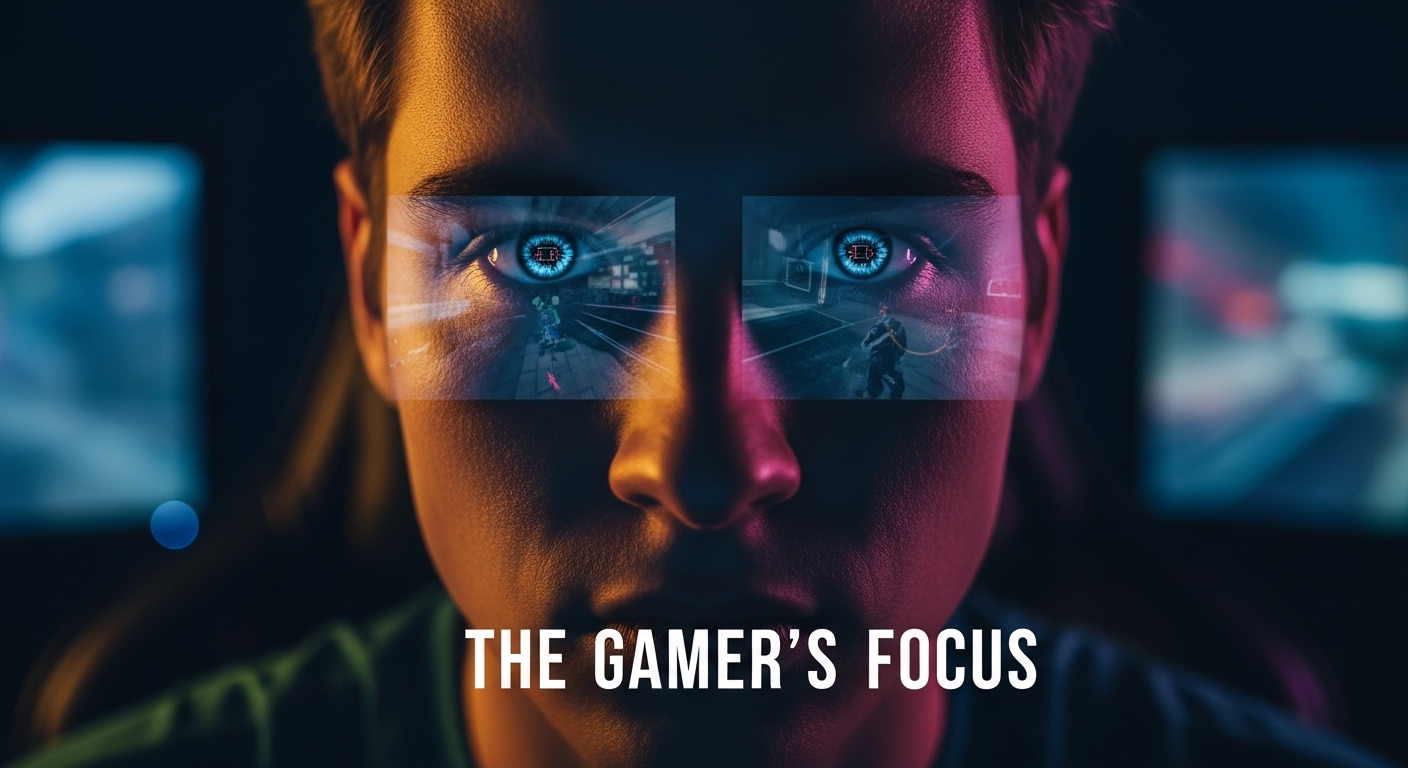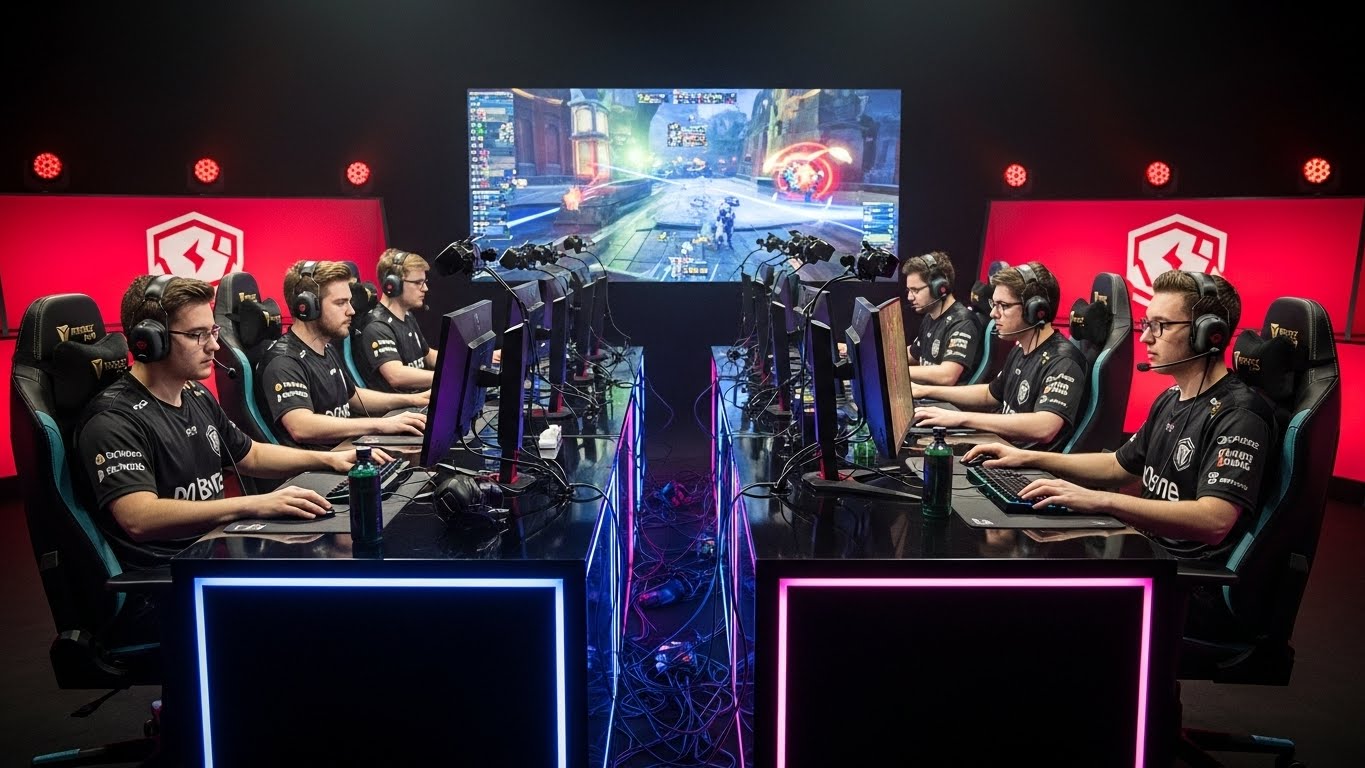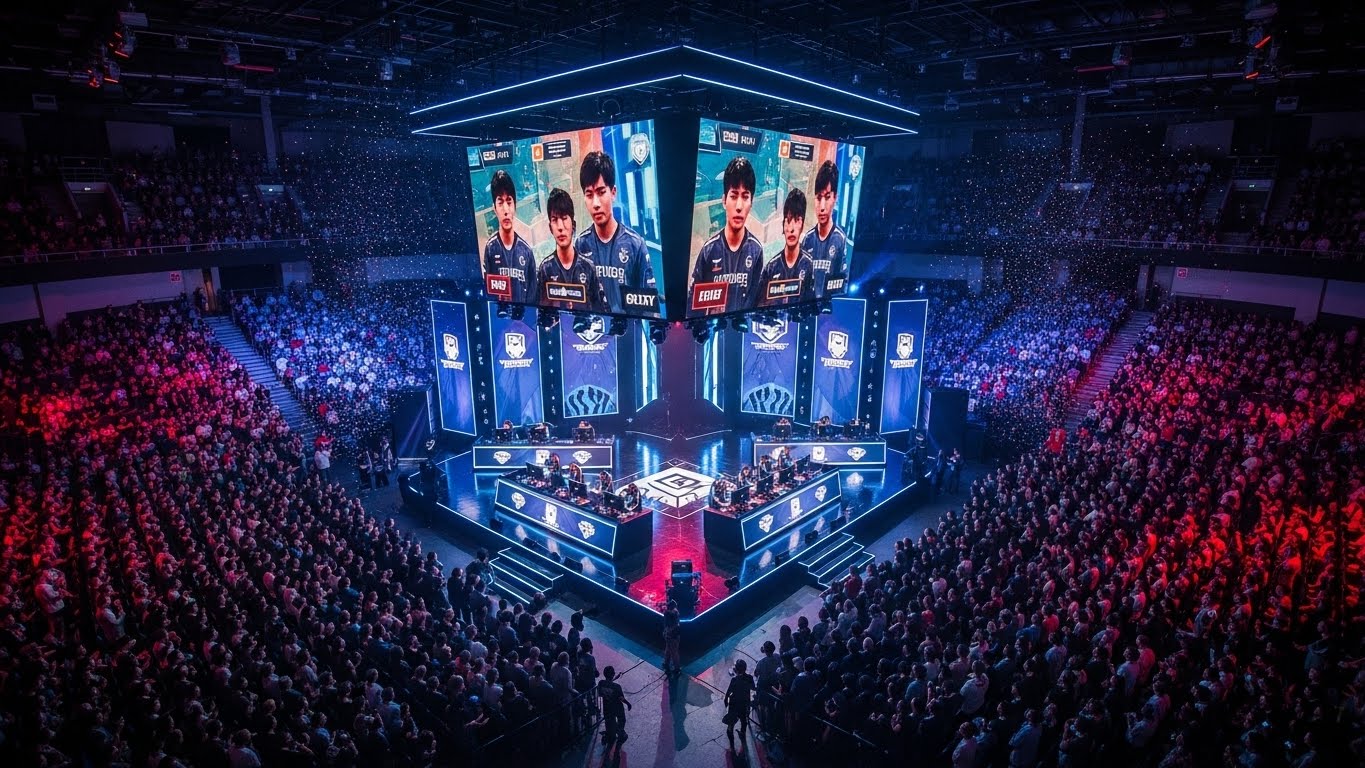In the last two decades, competitive gaming, now widely recognized as Esports, has transformed from a niche hobby into a global phenomenon. Once limited to small tournaments in local gaming shops or online forums, Esports has evolved into a multibillion-dollar industry, attracting millions of viewers and players worldwide. Professional players now earn significant incomes through sponsorships, tournament winnings, and streaming, and entire careers have emerged from the competitive gaming scene. This explosive growth has not only reshaped entertainment but has also challenged traditional notions of sports and competition.
The Origins of Competitive Gaming
The roots of Esports can be traced back to the 1970s and 1980s, when arcade games like Space Invaders and Pac-Man began gaining popularity. Early gaming competitions were informal, often taking place in arcades or college campuses, where high scores were recorded on leaderboards. By the 1990s, the rise of personal computers and networked gaming opened new doors. Games such as Quake, StarCraft, and Counter-Strike introduced a level of strategy and skill that naturally lent themselves to competitive play. These games marked the beginning of organized tournaments, and their communities laid the foundation for the structured Esports industry that exists today.
The Evolution of Esports Tournaments
Modern Esports tournaments are far removed from their humble beginnings. Early competitions often involved only local participants, minimal prizes, and limited media coverage. Today, major events like The International for Dota 2, the League of Legends World Championship, and the Overwatch League attract tens of millions of viewers globally. These tournaments feature professional production values, large prize pools, and corporate sponsorships. Players are no longer just enthusiasts; they are professional athletes with rigorous training schedules, coaching staff, and performance analytics similar to those found in traditional sports. The rise of live streaming platforms has also played a crucial role, allowing fans worldwide to watch competitions in real time and interact with players and communities.
Popular Esports Titles and Their Impact
Certain games have had an outsized influence on the development of Esports. League of Legends (LoL), developed by Riot Games, has arguably become one of the most influential titles in shaping modern competitive gaming. Its world championship consistently draws massive viewership numbers, rivaling traditional sports events. Dota 2, with its enormous prize pools funded through community contributions, has redefined the scale and prestige of Esports tournaments. Meanwhile, first-person shooters like Counter-Strike: Global Offensive and Valorant have maintained a dedicated fanbase, focusing on precision, teamwork, and strategy. Fighting games, such as Street Fighter and Super Smash Bros., represent another essential facet of Esports, highlighting skill, timing, and reflexes in intense one-on-one battles. The diversity of genres ensures that Esports appeals to a broad audience with varied interests.
Esports as a Career Path
For many, Esports has transitioned from a hobby to a viable career option. Professional players often dedicate several hours daily to practice, strategy, and team coordination. Beyond playing, careers in Esports include coaching, broadcasting, content creation, game development, and event management. Sponsorship deals and partnerships with brands offer additional revenue streams, making professional gaming an attractive option for skilled individuals. However, the path to success is highly competitive, requiring dedication, talent, and mental resilience. While some players achieve fame and fortune, many others struggle to maintain a stable career, highlighting the challenges inherent in the rapidly growing industry.
The Role of Streaming Platforms
Platforms like Twitch, YouTube Gaming, and Facebook Gaming have been instrumental in Esports’ rise. These platforms allow players to showcase their skills, interact with audiences, and build personal brands. Streamers often become celebrities within the gaming community, with some earning millions through subscriptions, donations, and sponsorships. Streaming also creates a feedback loop for the industry, as viewers develop loyalty to games and teams, fueling tournament attendance and merchandise sales. This accessibility has democratized the industry, allowing anyone with skill and charisma to reach global audiences without traditional media gatekeepers.
Esports and Technology
Technology is the backbone of Esports. High-performance gaming PCs, specialized peripherals, fast internet connections, and advanced software all contribute to competitive play. Moreover, innovations like virtual reality (VR) and augmented reality (AR) are beginning to influence Esports, promising new gameplay experiences and interactive viewing opportunities. Esports also relies heavily on analytics, with teams using data to optimize strategies, track player performance, and scout talent. As technology continues to advance, Esports will likely evolve in ways that are difficult to predict, offering richer experiences for both players and spectators.
The Global Impact of Esports
Esports is a truly global phenomenon. Countries like South Korea, China, and the United States lead in both player development and audience engagement. In South Korea, professional gaming has become a cultural staple, with entire television channels dedicated to broadcasting Esports events. China’s vast market has seen rapid growth in professional leagues and sponsorship opportunities. Even in smaller markets, local tournaments and online competitions provide platforms for players to shine. The international nature of Esports fosters cultural exchange, encourages collaboration, and builds communities that transcend geographical boundaries.
Esports and Education
Interestingly, Esports has also found its way into education. Schools and universities are establishing Esports programs, scholarships, and clubs to nurture talent and provide structured competitive opportunities. Academic institutions recognize that Esports can develop skills such as teamwork, strategic thinking, communication, and problem-solving. Collegiate Esports programs often mirror professional setups, complete with coaching staff and structured practice schedules. This educational integration further legitimizes Esports as a serious and respected field.
The Social and Cultural Influence of Esports
Beyond competition, Esports significantly influences popular culture. Streamers and players shape gaming trends, inspire fashion and merchandise, and influence digital media content. Communities built around games foster friendship, collaboration, and creativity, often giving rise to fan art, content creation, and shared experiences. Esports has also challenged traditional notions of physical sports, proving that mental agility, reflexes, and strategy can be as compelling as physical prowess. It has created a new form of celebrity, where skill and personality combine to generate fame and influence.
Challenges Facing the Esports Industry
Despite its success, Esports faces several challenges. Mental health concerns, burnout, and intense pressure are prevalent among professional players. The industry also contends with issues of inclusivity, gender representation, and fair compensation. Some games are criticized for pay-to-win mechanics, which can skew competitive balance. Additionally, regulatory frameworks for Esports are still in their infancy, raising questions about contracts, labor rights, and standardization. Addressing these challenges is crucial for the sustainable growth of the industry and for ensuring that Esports remains an accessible and fair competitive environment.
The Future of Esports
The future of Esports appears promising, with growth projected to continue globally. Technological advancements such as virtual reality, AI-driven analytics, and enhanced streaming capabilities will expand both gameplay and spectator experiences. Traditional sports organizations are increasingly investing in Esports, recognizing its potential to attract younger audiences. Moreover, as societal acceptance grows, Esports could play a more prominent role in mainstream entertainment, education, and even health and fitness through gamified training programs. The industry’s adaptability and innovation will likely ensure that Esports continues to thrive and evolve for decades to come.
Conclusion
Esports has emerged as a powerful force in global culture, redefining competition, entertainment, and career opportunities. From modest beginnings in arcades and LAN parties to international stadiums filled with cheering fans, Esports has come a long way. It combines strategy, skill, technology, and community, creating a unique ecosystem that continues to captivate millions. While challenges remain, the industry’s rapid growth, cultural impact, and integration with technology signal that Esports is not just a passing trend but a transformative movement shaping the future of competitive entertainment.



